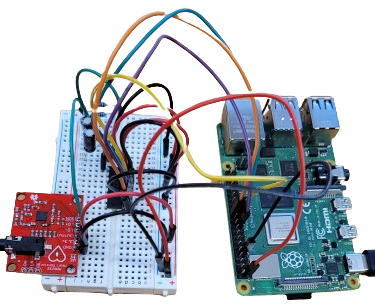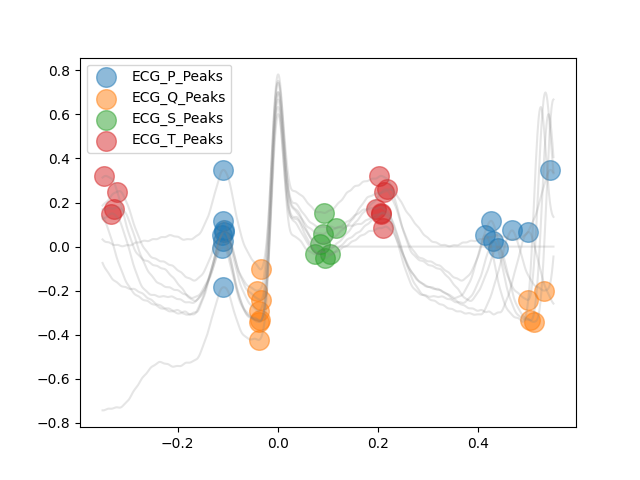
Förderjahr 2023 / Stipendien Call #18 / ProjektID: 6747 / Projekt: DEMon
Smart setup: Real-time ECG monitoring via Raspberry Pi and sensors showcases decentralized systems in healthcare. Local processing offers timely insights, tailored care, and reduces dependency on centralized infrastructure.
Use Case in Health Monitoring
In this project, an analog ECG sensor was seamlessly integrated with a Raspberry Pi using an analog-to-digital converter (ADC), establishing a robust platform for decentralized ECG monitoring. The inclusion of a low-pass filter further bolstered signal fidelity, ensuring precise data acquisition crucial for accurate cardiac health assessment. Notably, the decision to process the ECG signal directly on the Raspberry Pi highlights the efficacy of decentralized systems in healthcare. By shifting computational tasks to the edge, this setup minimizes latency, enhances data privacy, and reduces reliance on centralized infrastructure. Moreover, decentralized processing enables real-time analysis, empowering healthcare providers with timely insights for personalized patient care. This implementation exemplifies the practicality and efficiency of decentralized intelligent systems in healthcare, offering a scalable solution for remote patient monitoring and improving accessibility to critical medical services.

Why electrocardiogram?
The electrocardiogram (ECG) stands as a cornerstone in healthcare for its unparalleled ability to provide critical insights into cardiac health. By capturing the electrical activity of the heart, an ECG can detect abnormalities such as arrhythmias, ischemia, and other cardiac conditions. This non-invasive diagnostic tool plays a pivotal role in early detection, enabling timely interventions and mitigating the risk of serious cardiovascular events. In comparison, while IoT watches offer convenience and continuous monitoring, their ECG signals may lack the precision and clinical accuracy of traditional ECG machines due to factors like sensor quality and placement.


